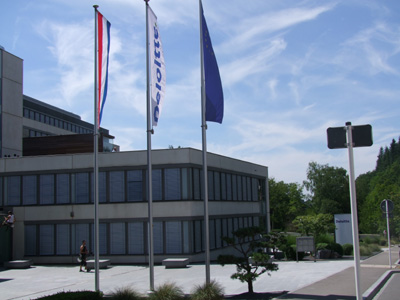
Big demands and high expectations characterise the results of Deloitte’s recently published third annual Millennial Survey.
Across the globe, 70% of tomorrow’s future leaders might ‘reject’ what business as traditionally organised has to offer, preferring to work independently through digital means in the future. This and other findings in Deloitte’s annual study of Generation Y point to significant challenges business leaders face if they are to meet the expectations of the Millennial generation.
Millennials, born January 1982 onwards, are already emerging as leaders in technology and other industries and will comprise 75% of the global workforce by 2025. They want to work for organisations that foster innovative thinking, develop their skills and wish to see them make a positive contribution to society. The study also reveals that Millennials believe businesses are not currently doing as much as they could to develop their leadership skills and that they need to nurture their future leaders, especially as they cannot count on them biding their time until senior positions arise.
“We believe that innovation and ‘out of the box’ thinking fostered within a company and shared amongst colleagues are key traits to be circulated within the heart of businesses today, an area in which we place great emphasis on at Deloitte,” said Raymond Krawczykowski, tax Partner and Talent Leader at Deloitte Luxembourg.
Other key findings from the survey include:
- Business could achieve more. While most Millennials (74%) believe business is having a positive impact on society by generating jobs (48%) and increasing prosperity (71%), they think business can do much more to address society’s challenges in the areas of most concern: resource scarcity (68%), climate change (65%) and income equality (64%). Additionally, 50% of Millennials surveyed want to work for a business with ethical practices.
- Organisations must foster innovative thinking. Millennials want to work for organisations that support innovation. In fact, 78% of Millennials are influenced by how innovative a company is when deciding if they want to work there, but most say their current employer does not greatly encourage them to think creatively. They believe the biggest barriers to innovation are management attitude (63%), operational structures and procedures (61%) and employee skills, attitudes, and (lack of) diversity (39%).
- Organisations must nurture emerging leaders. Over one in four Millennials are ‘asking for a chance’ to show their leadership skills. Additionally, 75% believe their organisations could do more to develop future leaders.
- Millennials are eager to make a difference. Millennials believe the success of a business should be measured in terms of more than just its financial performance, with a focus on improving society among the most important things it should seek to achieve. Millennials are also charitable and keen to participate in ‘public life’: 63% of Millennials donate to charities, 43% actively volunteer or are a member of a community organisation, and 52% have signed petitions.
“Generation Y places great importance in working for an organisation that fosters innovative thinking and makes a positive contribution to society,” said Raymond Krawczykowski. “Developing such culture is fundamental to retain not only talent but to cultivate the leaders of tomorrow for success within the workplace as well as within their global community.”








